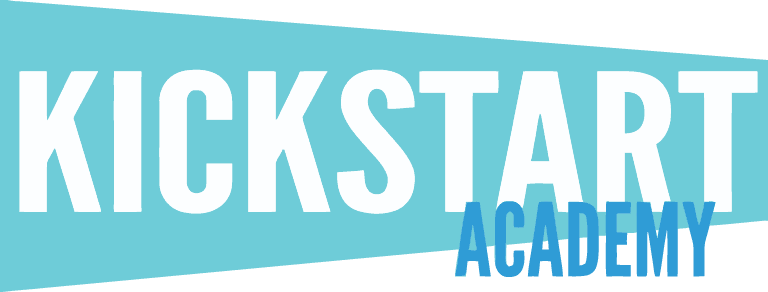We have a subject specialist and teaching assistant in every lesson which ensures that Physical Education is taught effectively to a high standard. Students follow the leadership skills foundation level 1 qualification in sports leadership and complete a compliment of AQA Awards.
We deliver a progressive and coherent curriculum, that is designed to aid revision, retrieval and retention of information. Practical sports sessions are delivered using a specific scheme to cover all variables incorporated in a professional environment for all sports. This includes the introduction and importance of warm-ups, cool downs, intrinsic and extrinsic factors that can lead to injury.
The theory-based classroom sessions, use visual, auditory and kinaesthetic methods of learning. For example, visual displays and presentations, discussion sessions, videos, role play, Kahoot, CAT and mock assessments.
We closely track students’ progress throughout the delivery of the lessons to check that knowledge, understanding and skills are secured. The schemes of work are broken down into the specific units to present a clear indication to students of their own progress. The course also promotes good health and wellbeing through encouraging sport every day, linking it practically to real life factors and how it can improve all aspects of daily life, including sports performance.
Students will participate in activities that link to the specific sport being studied and apply previous year’s knowledge of physical activity.
They will develop skills to solve problems during team games and analyse their own and others work through self and peer reflection. Students will be given the opportunity to lead small group activities or warm ups. Students will be encouraged to volunteer to lead tasks and help contribute individually or as part of a team.
Within each activity area students will link their learning to:
Sporting skills they develop along
Knowledge and application of rules in sports
Sports Leadership, students will design, deliver and critique lessons and competitions across a range of ages and ability levels
Fitness and fitness testing, students will understand the importance of physical activity and begin to explain the impact exercise has on health and performance.
Students will access a range of sports that are adaptable to the needs of the individual learner creating more of a bespoke pathway for the students at Kickstart Academy. Students will develop creative skills, they will develop skills from serial to applying them into competitive situations and will further develop leadership skills across all activity areas in year 10 and 11.
To ensure our aims for the curriculum are implemented effectively we instil 6 core values into our curriculum known as ‘The Kickstart 6.’ In Physical Education this is achieved in the following ways:
Knowledge
- Use of retrieval practice of topics taught using a combination of short-term and longer-term memory (lesson visuals, and ‘Do Now’ activities etc.)
- Reducing cognitive overload when introducing new topics by chunking information down, modelling new concepts (‘I Do / We Do / You Do’ etc.) and using regular low-stakes assessment to check new learning.
- Developing subject knowledge of teachers regularly through CPD.
In PE, students are given ‘Do Now’ activities on a lesson-by-lesson basis that incorporate retrieval practise and demonstrate the sequence of learning within the curriculum.
Explanation and Practice
- Teacher-led explanations are clear and concise.
- Information is provided in a student-friendly way that is accessible by all.
- Information is chunked when necessary.
- Guided and independent practice is embedded within lessons using clear success criteria.
The lessons in PE are very interactive and there are plenty demonstrations form staff and students.
Modelling and Scaffolding
- New concepts, tasks, and knowledge are modelled first with differentiated scaffoldings provided where required to help build students’ confidence
- A variety of models (worked examples, live modelling etc.) are shared with students to enhance their understanding.
Within our PE theory lessons, students are offered writing frames as a scaffold with the expectation that they can express the required information confidently by the end of year 11.
Questioning
- Targeted questions are used to gain live feedback from students in the lesson.
- A variety of questioning methods are used (cold calling, show-me boards etc.)
- Questioning is used to allow students to deepen their understanding through subject-specific terminology and academic dialogue.
In PE there are wall displays showing subject specific terms which are used when questioning students and then for self-reflection and evaluation of their own work.
Throughout the course students are expected to be curious learners able to enquire and reflect on their own and others sporting attributes. When asking questions that require an opinion some students may require a prompt. Opportunities are given for whole class discussion and questioning.
Feedback
- Feedback includes a combination of live questioning within the classroom and more deeply marked pieces of work.
- Feedback is personalised (Pink for Think, live marking etc.) to allow students to progress with their individual learning.
- Feedback is given in a positive, encouraging, and constructive way (WWW and EBI etc.)
- Students are actively encouraged to engage with feedback (DIRT, Purple for Progress etc.) to address learning gaps.
In PE we provide feedback using the whole academy policy intended to standardise teaching and learning. Marking is completed regularly and gives students time to reflect on the feedback given and act on the advice.
Behaviour and Relationships
- Teachers create environments in which all students feel safe.
- Positive and professional relationships are established though clear roles, routines, expectations, and boundaries.
- Routines and behaviours are rehearsed and positively modelled by staff.
- Differentiated behaviour management strategies are applied to help challenge and correct student behaviour.
Academy rules are followed consistently making the PE room and wider environment a safe environment for staff and students.
Experienced staff know their students and follow the students’ behaviour plans and understand their students’ attitude to learning
